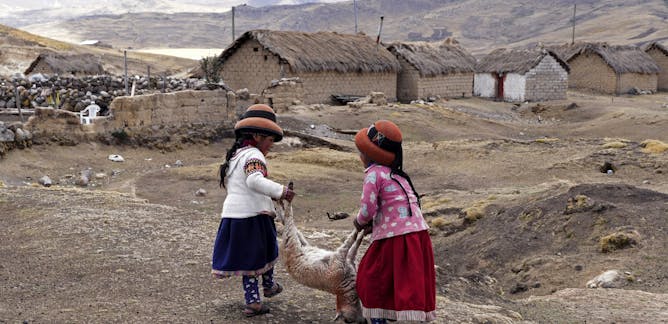
University of British Columbia

The University of British Columbia is a global centre for research and teaching, consistently ranked among the top 20 public universities in the world. Since 1915, UBC’s West Coast spirit has embraced innovation and questioned the status quo. With close to 63,000 students from 160 countries and more than 5,400 faculty on two campuses in Vancouver and the Okanagan, UBC is a place where bold thinking develops into ideas that can change the world. Its entrepreneurial perspective encourages students, staff and faculty to challenge convention, lead discovery and explore new ways of learning.
Links
Displaying 1 - 20 of 595 articles

Girls bear the brunt of the climate crisis. It’s time we bring them to the centre of international climate policy.

Kelp forests around the world, and in Canada, are under threat. New research sheds further light on the health, and resilience, of these crucial ecosystems.

Beyoncé’s country-inspired album has caused a stir because the country music scene has a history of racial segregation that has erased its Black roots and gatekept it from Black artists.

The sky is becoming more cluttered with satellites and space junk. This is affecting astronomical study, but will only have a minor effect — if any — on the viewing of the solar eclipse.

Estudo da UFSC mostrou que idosos com deficiência da vitamina podem ter de 2 a 3 vezes mais chances de apresentar sintomas depressivos

Universities must not only invest in dedicated senior equity leader roles with specialized knowledge and expertise. They must also ensure these roles are resourced and empowered with authority.

Casteism is commonly seen as a form of discrimination limited to South Asia. However, diaspora communities in Canada are also grappling with issues of caste.

A new study examines why women who report sexual misconduct often experience retaliation while men who are alleged perpetrators of sexual assault escape repercussions.

Climate change is often seen as solely a technical problem. This is a misguided belief. Understanding how to build a better world begins, and ends, with understanding the societies which inhabit it.

Pierre Poilievre’s “tough-on-crime” rhetoric relies on discredited ideas that can lead to overly harsh penalties and actually increase crime.

Universities should shift toward co-operative governance structures that foster collaborative approaches to teaching and research, which can help tackle the crises we collectively face.

Recent research shows how reducing overfishing is both an ecological imperative and a critical means to addressing climate change.

Integrating local and Indigenous knowledge into conservation can help to support diverse diets without compromising biodiversity goals.

The use of large language models like ChatGPT is growing globally. These technologies are trained on datasets that recreate biases — as their use increases, their datasets must become more diverse.

Canada is wasting resources, and legitimacy, conserving species that are not endangered elsewhere. Transparent cross-border considerations should inform all new conservation laws.

Women in Makoko, a floating slum in Nigeria, face challenges funding their fish trade. Literacy and financial inclusion programmes can make a difference.

People with disabilities contend with daily challenges and ableism. Here are some dos and don'ts to help you be more mindful of those living with a disability.

The Settlers of Catan codified a certain kind of game play based on the history of settler colonialism.

The growing absence of non-digital alternatives to everyday tasks, like government services and health care, is contributing to digital dependence. This, in turn, affects people’s wellbeing.

In both mainstream and Indigenous communities across Canada, sport is neither inherently good nor bad. Rather, it is a tool that must be used responsibly.
